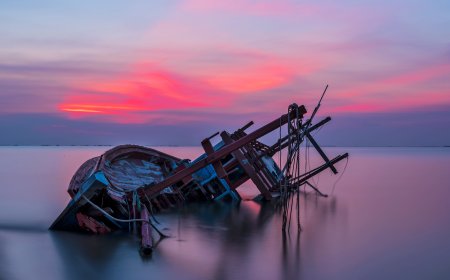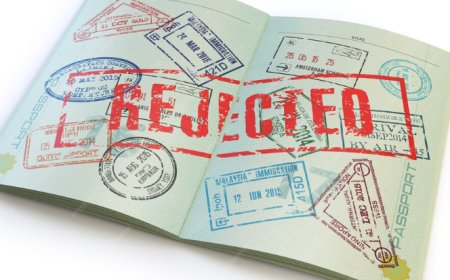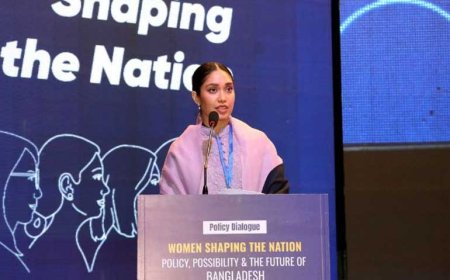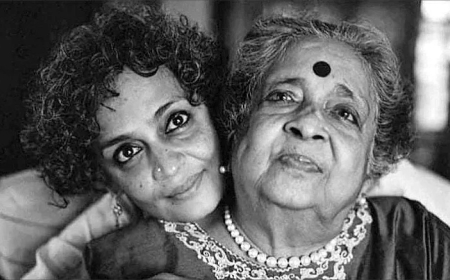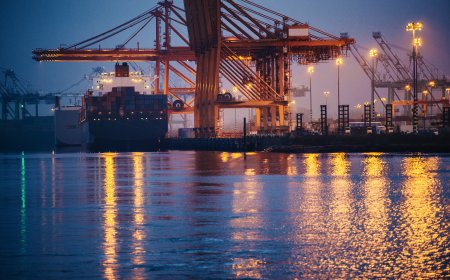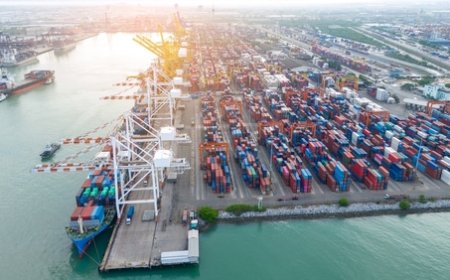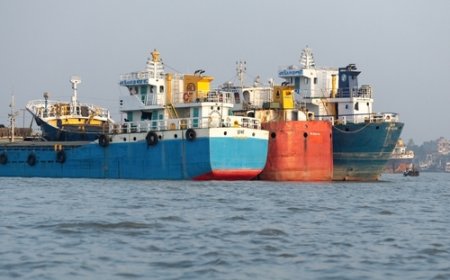Why Bangladesh Needs DP World’s Investment
The DP World deal could be a game-changer for Bangladesh. We need to not let vested interests or shallow nativism trip us up.
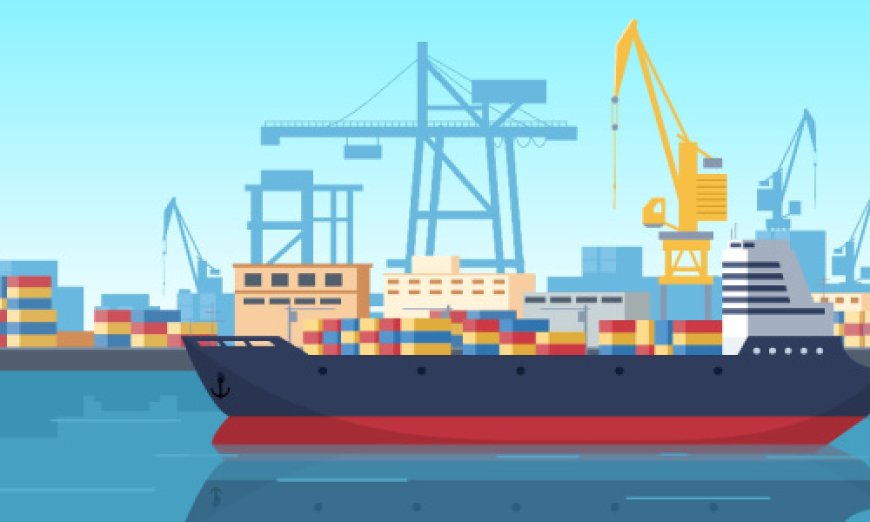
Let’s start with two revealing facts. According to the Journal of Commerce, Bangladesh loses $1.1 billion annually due to inefficiencies and congestion at Chittagong Port -- a loss that, if avoided, could boost our GDP by 2%. Meanwhile, Ashiq Chowdhury, the Chairman of the Bangladesh Investment Development Authority (BIDA), is often asked why foreign investment isn’t flowing in.
If he could attract even $1 billion through a single deal, that narrative would change dramatically. This is precisely the potential of DP World’s proposal.
As a former member of the Foreign Investors’ Chamber of Commerce and Industry (FICCI), I have had opportunities to engage with BIDA. Compared to earlier years, BIDA has become more proactive. Yet our ports remain stuck in outdated bureaucratic cycles -- cycles that Ashiq Chowdhury and his team still have to navigate.
Here lies an opportunity for a historic foreign investment that could modernize our ports and eliminate chronic inefficiencies. The urgency of this modernisation cannot be overstated. And yet, some voices oppose it blindly. Yes, I am talking about DP World.
It's important to recognize that any major investment carries risks, and the DP World deal is no exception. However, the potential benefits far outweigh these risks. Much of this opposition stems from misinformation. In Bangladesh, we tend to split into two camps over every issue, often acting in self-sabotaging ways that hinder one another. Let’s try to break the myths and understand the facts.
Who is DP World?
DP World is a UAE-based global port and logistics giant, operating in more than 70 countries. They manage ports, container terminals, rail, warehouses, and customs systems -- including the world’s 9th-largest port, Jebel Ali in Dubai. In 2023, DP World ranked 5th worldwide among container terminal operators, handling approximately 5.1% of global container traffic and processing 81.5 million TEUs annually. They currently operate 78 marine and inland terminals across over 40 countries.
What is the state of Chittagong Port?
According to the World Bank’s 2023 Container Port Performance Index, Chittagong ranks 337th out of 405 ports. In 2021, it was branded the most inefficient port in Asia. Ships wait an average of 3.23 days for unloading here, compared to just 0.86 days at Colombo. Containers stay at the port for around 11.5 days -- well above international standards. Average crane productivity is 15-20 moves per hour, compared to 25 or more moves per hour internationally. The berth productivity is 35 containers per hour, while Colombo achieves 80-100. Logistics costs account for 4.5-4.8% of our GDP, which is significantly higher than that of our neighbours. Although there has been a 5.21% improvement in performance since the previous government fell, core inefficiencies persist.
What about New Mooring Terminal (NCT)?
Since 2007, Saif Powertec has operated NCT. In 2015, A&J Traders and MH Chowdhury Ltd joined the consortium -- allegedly supported by the previous government. Although it is Bangladesh’s most modern terminal with 14 gantry cranes, 4-5 of those cranes are currently out of service.
Is NCT performing well?
Recent data presents a different picture. In May, the General Cargo Berth (GCB), which operates without gantry cranes and depends on manual labour, unloaded an average of 829 containers per day. In comparison, NCT, equipped with advanced machinery, handled only 849. Thus, the efficiency is only marginally better despite modern infrastructure. Meanwhile, Saif Powertec, which also manages the Chittagong Container Terminal (CCT) with four gantry cranes, unloaded just 757 containers. This demonstrates that the so-called performance is exaggerated by others’ underperformance, not by genuine efficiency. However, at last, the Bangladesh government has decided to cease operations with Saif Powertec.
How Will DP World Help?
1. Reduce Ship Waiting Time: Ships now wait an average of 11 days, sometimes even 20. DP World can optimize berth productivity. At Berbera Port, Somalia, efficiency was improved by 450%.
2. Faster Container Handling: The port's current maximum is 21 containers per hour. DP World could raise it to 30-35. In Peru’s Port of Callao, performance improved by 80%.
3. Lower Demurrage Costs: Ships incur $12,000-20,000 per day in demurrage while waiting. Reducing wait times will save millions in daily costs.
4. Boost Government Revenue: In the Dominican Republic, DP World helped raise $52 million in additional revenue in a single year.
5. Technology and Digitization: DP World proposes replacing old cranes, introducing Terminal Operating Systems (TOS), automated gates, and real-time KPI dashboards. Digitised customs could reduce corruption and delay.
6. Employment and Skills Development: Contrary to popular belief, foreign companies do not flood local operations with expatriates--visa restrictions make it difficult. DP World has created 12,500 jobs in South Africa. In Bangladesh, similar growth will demand trained local staff.
7. Green Port Transformation: In Peru, DP World’s green initiatives reduced carbon emissions by 2,000 tons annually. Bangladesh, with its commitment to sustainability, has the potential to become a regional leader in green logistics, a fact that should inspire national pride.
8. Massive Investment: A $ 1 billion+ investment would transform BIDA’s portfolio and improve our economic indicators.
What Else Could Bangladesh Gain?
• Lower Logistics Costs: Reduced time and shipping charges will make us more competitive globally, especially as we transition from LDC status.
Across South and Southeast Asia, countries such as Vietnam and India have actively upgraded their port infrastructure through international partnerships. Vietnam’s efficiency improvements have attracted major manufacturing shifts, while India’s Adani Group has helped ports become export-ready in record time. Even Sri Lanka’s Hambantota, despite economic challenges, has started to serve as a regional transhipment hub. If Bangladesh falls behind in this transition, we risk being bypassed in global supply chains.
• G2G Collaboration: As this will be a government-to-government (G2G) deal, Bangladesh can negotiate broader benefits, such as a permanent display centre in Dubai for our exports. This type of collaboration ensures that the agreement is not just about the immediate gains for DP World, but also about the long-term strategic advantages for Bangladesh.
Strengthening ties with the United Arab Emirates through DP World is not merely an economic move -- it is a strategic alignment. The UAE's growing influence in Gulf diplomacy, maritime trade, and infrastructure finance highlights its significance. Bangladesh’s partnership with a UAE-owned operator can enhance access to Middle Eastern and African markets, creating new channels for labour exports, technology exchange, and joint ventures beyond port logistics. This alignment could potentially open up new opportunities for Bangladesh on the global stage.
• Port Ecosystem: DP World aims to replicate the Jebel Ali port ecosystem in Chattogram by attracting partner firms and transforming it into a logistics hub.
While modernization can cause concern among port workers, international experience shows that structured transitions can lead to improved wages and job security in the long term. The government should require DP World to create a fund for labour upskilling and transition. This would ensure no worker is left behind and that younger employees can access training that meets international standards. Such an initiative would also help reduce labour resistance and support Bangladesh’s broader human capital objectives.
• Stronger Bilateral Ties: The UAE is one of our top remittance sources. DP World has already offered to help facilitate labour exports.
• Confidence from Other Investors: Major foreign investments attract more confidence. If this deal succeeds, refinery and other infrastructure projects will follow.
We urge the government to negotiate for a modern hospital in Chattogram under DP World’s CSR program—a practice they have followed in other countries.
Who is Opposing and Why?
Some current leaseholders are reluctant to lose a lucrative asset. Others aim to gain control under a future government. Not surprisingly, some leftist groups oppose all forms of foreign investment. There is also regional concern—India has preferential port access, and Chattogram has long been used to “manage” shipments unofficially. A modern, efficient port poses a threat to these networks.
However, DP World will only manage the container operations for a single terminal. The Chattogram Port Authority maintains complete oversight.
Clarifying Sovereignty Concerns with a Simple Analogy
Much of the opposition arises from a misunderstanding of how port operations function. Handing over a terminal’s management to DP World is not selling national assets -- it is outsourcing operational efficiency, not ownership. Think of it as hiring a world-class chef to run your kitchen -- the house remains yours, but the food quality and service improve dramatically. DP World will be responsible only for container handling in one terminal, while the overall control remains firmly with the Chattogram Port Authority.
Existing deals are similar -- for instance, the Patenga terminal is managed by the Saudi firm Red Sea Gateway, although it has not yet invested. There is no evidence that DP World has compromised national sovereignty in any of the over 40 countries where it operates.
I’ve consulted with stakeholders, including logistics firms, exporters, captains, and marine engineers, many of whom have worked with DP World abroad. Not one opposes this deal. All support modernization.
Where Does the Deal Stand?
The terms and conditions are still being finalised. The government has engaged the International Finance Corporation (IFC) as a consultant -- a move that is unprecedented. However, IFC missed its April submission deadline. Meanwhile, the current lease ends on July 7. If the deal isn’t signed by September, DP World may relocate the investment elsewhere and will not reconsider until June next year.
Time is Now: Post-Uprising Investment Momentum
The timing of this deal could not be more vital. Following a significant political shift and calls for transparency, global investors are closely monitoring how Bangladesh navigates its new chapter. A successful agreement with DP World would send a strong message that the country is open for business, dedicated to reform, and prepared to rebuild investor confidence. Delay or derailment at this point risks reinforcing old doubts just as the world’s attention is focused.
Should the Government Consult Political Parties?
Absolutely. Future governments need to support this. Transparency is essential for building public trust -- something previous administrations lacked. If explained correctly, all parties should back it. After all, they will inherit the benefits.
Final Thoughts
Bangladesh used to attract $3 billion in annual investment, often inflated with loans and retained earnings. That figure dropped significantly. A deal exceeding $1 billion from DP World could help regain momentum. This would be the third-largest single-company investment in Bangladesh.
Build Public Confidence Through Full Disclosure
Finally, to dispel rumours and enhance accountability, the government should establish a public disclosure mechanism -- possibly a website that presents the key terms of the DP World agreement in both Bangla and English. Citizens, journalists, and policymakers alike would benefit from transparency. It would also help prevent the culture of secrecy that tarnished past deals and ensure that this partnership sets a new standard for public-private collaboration in Bangladesh.
This deal could facilitate future strategic investments, including the essential refinery project aimed at boosting energy security. However, we must also ensure that customs efficiency improves alongside port operations.
For the sake of our country, every stakeholder -- political party, government official, and citizen -- must do their part. Nothing valuable ever comes easily. While we must protect our sovereignty, we cannot allow outdated fears to prevent us from making real progress.
Subail Bin Alam is a columnist on sustainable development and investment policy.
What's Your Reaction?







